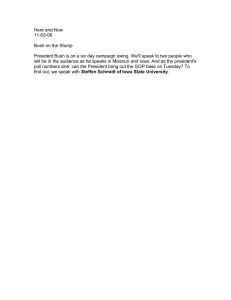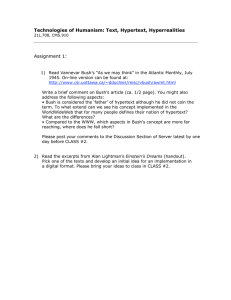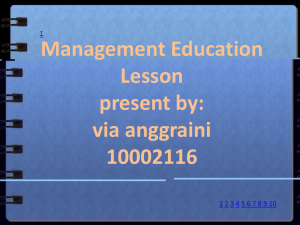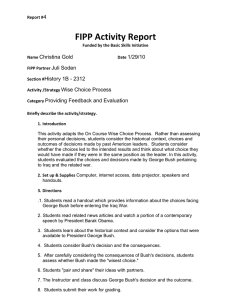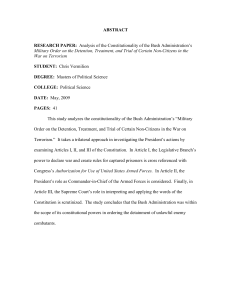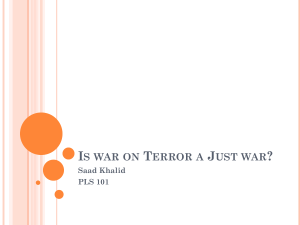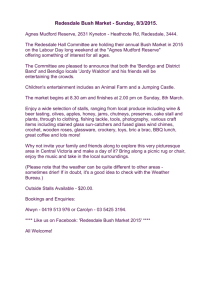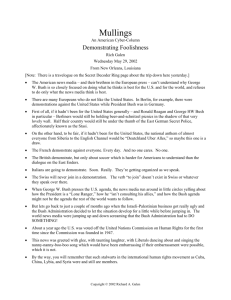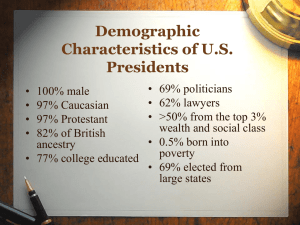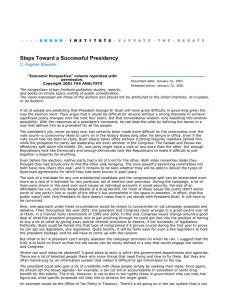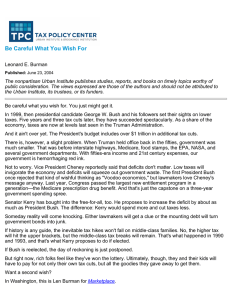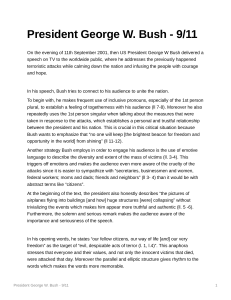Response to the State of Union January 21, 2004
advertisement
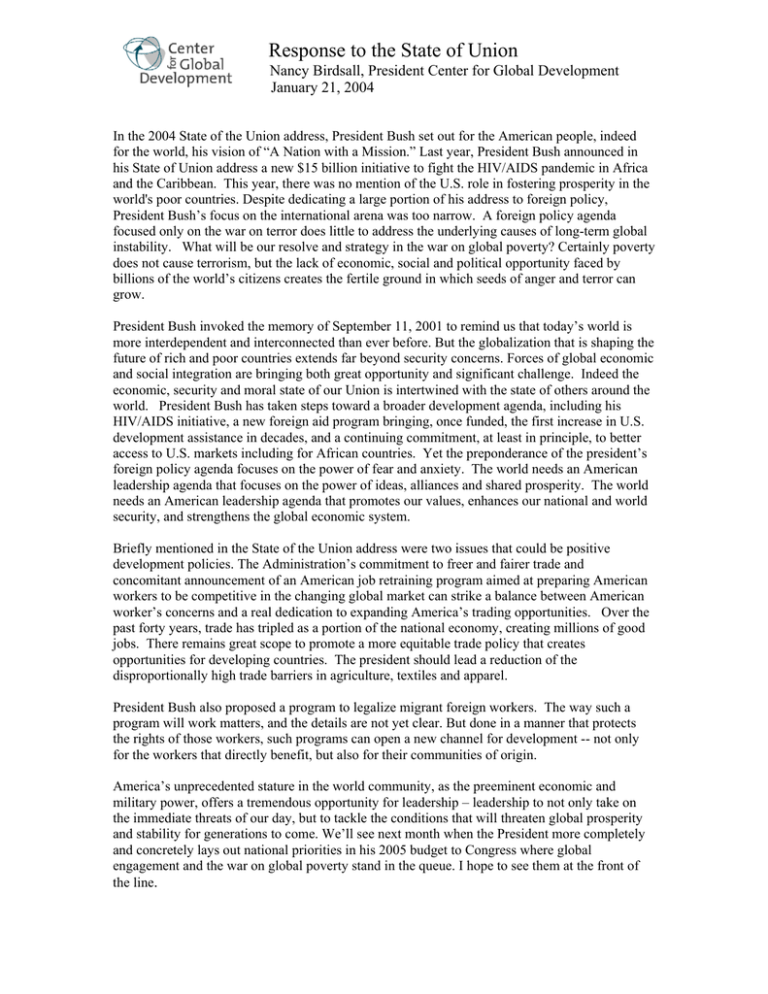
Response to the State of Union By Nancy Birdsall, President Center for Global Development January 21, 2004 In the 2004 State of the Union address, President Bush set out for the American people, indeed for the world, his vision of “A Nation with a Mission.” Last year, President Bush announced in his State of Union address a new $15 billion initiative to fight the HIV/AIDS pandemic in Africa and the Caribbean. This year, there was no mention of the U.S. role in fostering prosperity in the world's poor countries. Despite dedicating a large portion of his address to foreign policy, President Bush’s focus on the international arena was too narrow. A foreign policy agenda focused only on the war on terror does little to address the underlying causes of long-term global instability. What will be our resolve and strategy in the war on global poverty? Certainly poverty does not cause terrorism, but the lack of economic, social and political opportunity faced by billions of the world’s citizens creates the fertile ground in which seeds of anger and terror can grow. President Bush invoked the memory of September 11, 2001 to remind us that today’s world is more interdependent and interconnected than ever before. But the globalization that is shaping the future of rich and poor countries extends far beyond security concerns. Forces of global economic and social integration are bringing both great opportunity and significant challenge. Indeed the economic, security and moral state of our Union is intertwined with the state of others around the world. President Bush has taken steps toward a broader development agenda, including his HIV/AIDS initiative, a new foreign aid program bringing, once funded, the first increase in U.S. development assistance in decades, and a continuing commitment, at least in principle, to better access to U.S. markets including for African countries. Yet the preponderance of the president’s foreign policy agenda focuses on the power of fear and anxiety. The world needs an American leadership agenda that focuses on the power of ideas, alliances and shared prosperity. The world needs an American leadership agenda that promotes our values, enhances our national and world security, and strengthens the global economic system. Briefly mentioned in the State of the Union address were two issues that could be positive development policies. The Administration’s commitment to freer and fairer trade and concomitant announcement of an American job retraining program aimed at preparing American workers to be competitive in the changing global market can strike a balance between American worker’s concerns and a real dedication to expanding America’s trading opportunities. Over the past forty years, trade has tripled as a portion of the national economy, creating millions of good jobs. There remains great scope to promote a more equitable trade policy that creates opportunities for developing countries. The president should lead a reduction of the disproportionally high trade barriers in agriculture, textiles and apparel. President Bush also proposed a program to legalize migrant foreign workers. The way such a program will work matters, and the details are not yet clear. But done in a manner that protects the rights of those workers, such programs can open a new channel for development -- not only for the workers that directly benefit, but also for their communities of origin. America’s unprecedented stature in the world community, as the preeminent economic and military power, offers a tremendous opportunity for leadership – leadership to not only take on the immediate threats of our day, but to tackle the conditions that will threaten global prosperity and stability for generations to come. We’ll see next month when the President more completely and concretely lays out national priorities in his 2005 budget to Congress where global engagement and the war on global poverty stand in the queue. I hope to see them at the front of the line.
